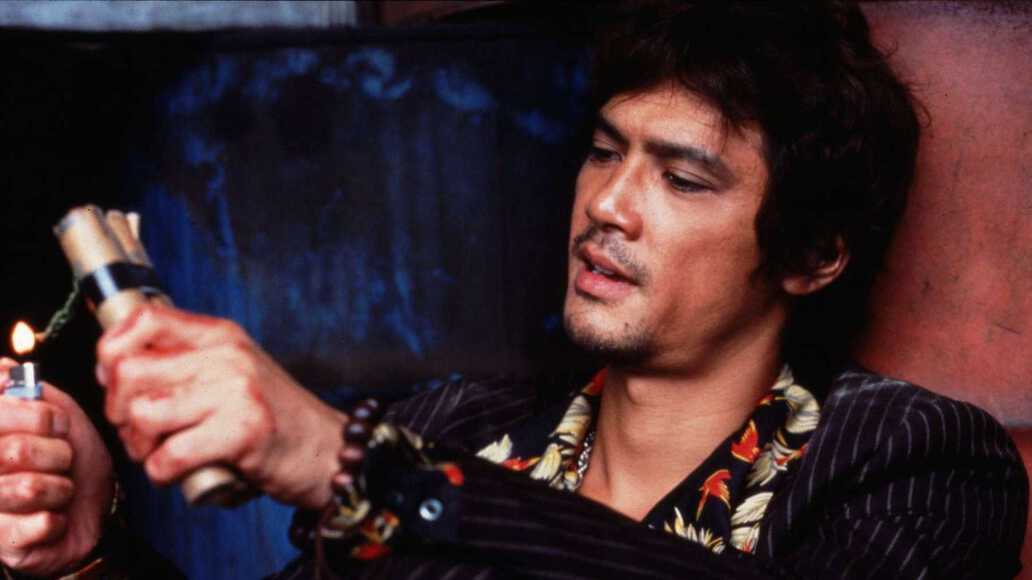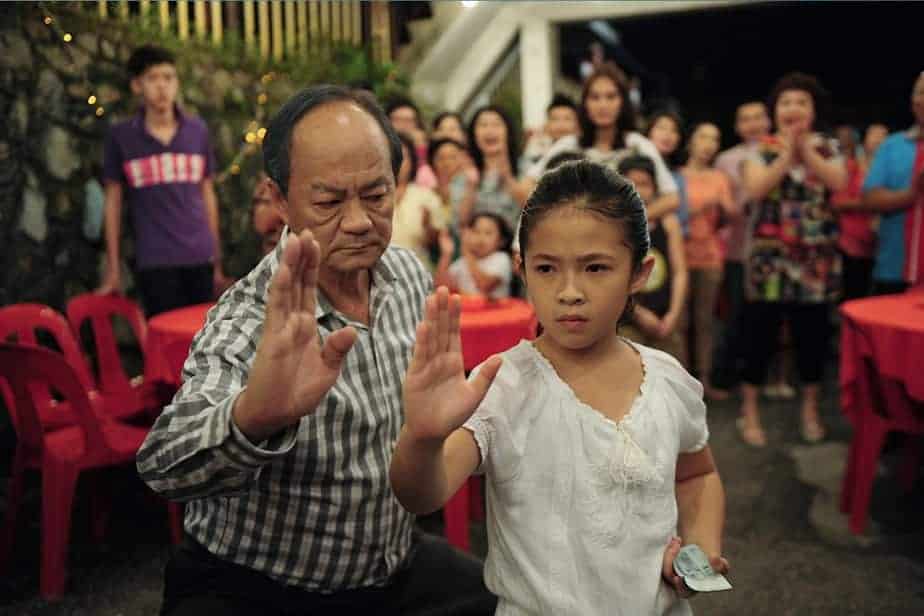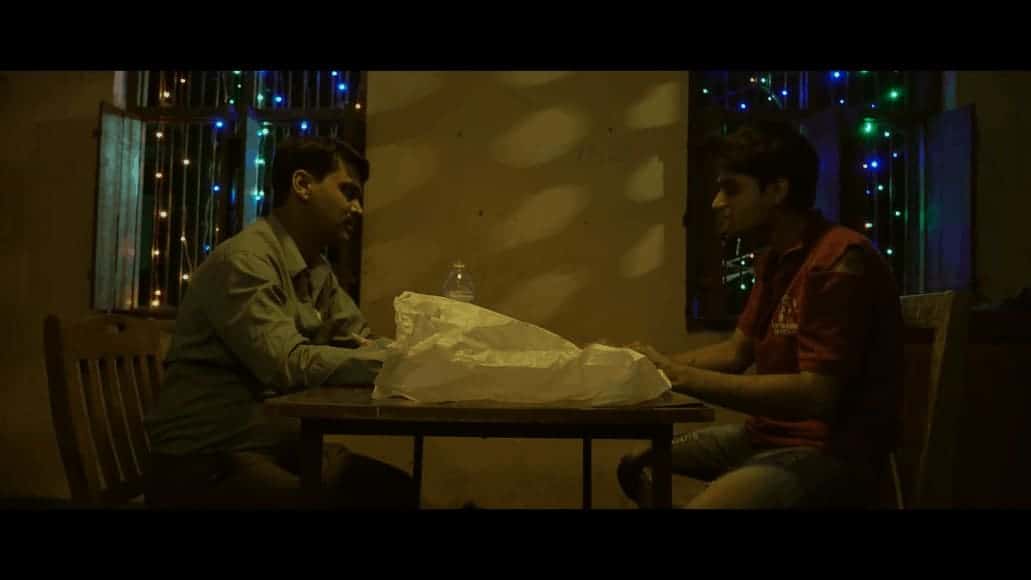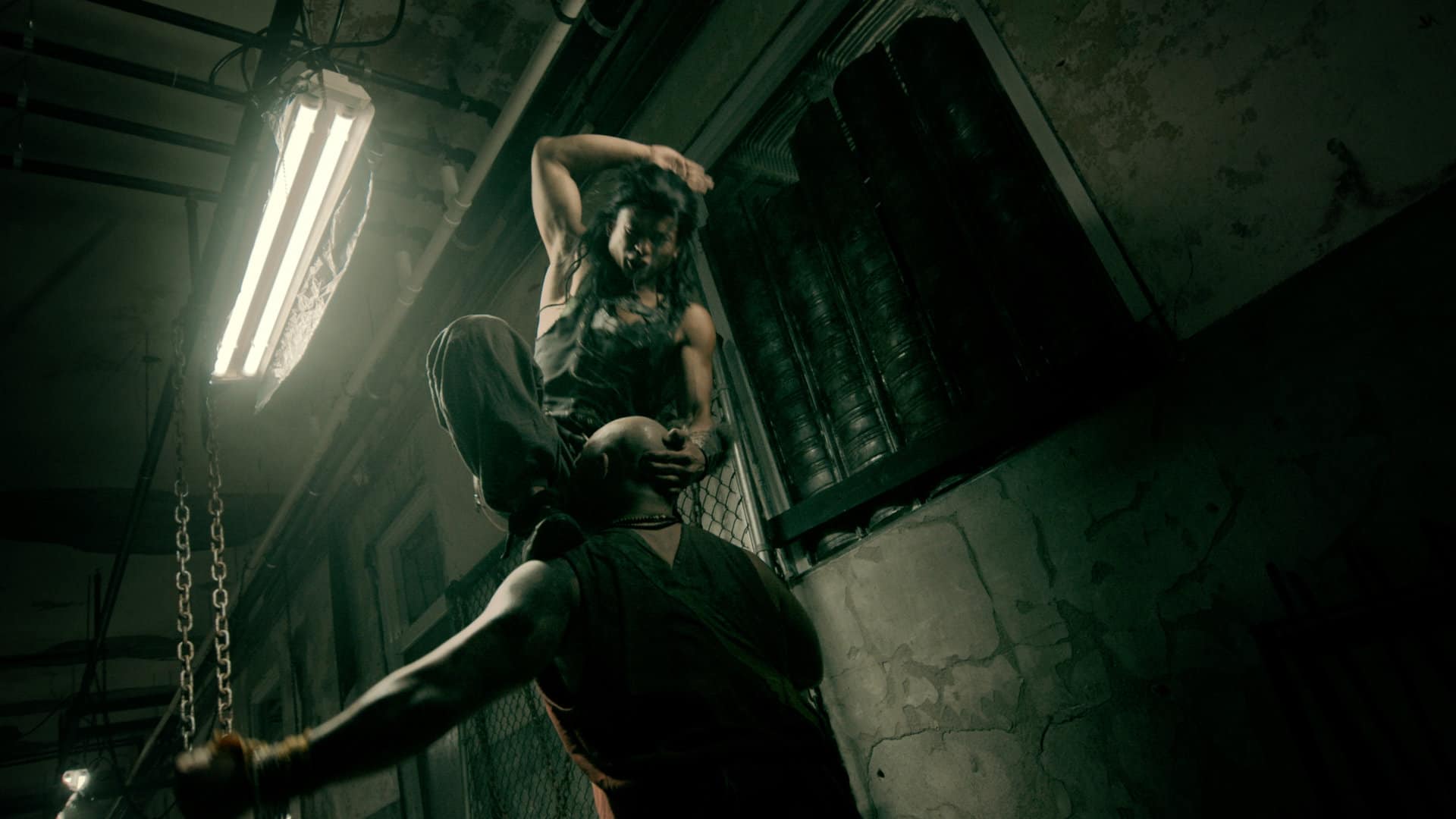Lee Chang-hee's feature directorial debut “The Vanished” is a remake of the 2012 Spanish thriller “The Body”/”El Courpo” (dir. Oriol Paulo). While Lee's film keeps the main plot points of the original, he intensifies the neo-noir qualities through cutting out extraneous characters and locations and heightening the interpersonal dynamics between the protagonist and antagonist within a morally ambiguous world. As the interplay between the original Spanish title and the Korean one suggests, the central narrative enigma concerns a body that vanishes into the night. It should also be no surprise that it is a female body that disappears and needs to be found, deciphered and narratitvized in order to resolve male conflict and restore order.
“The Vanished” is part of the Asian selection at Fantasia International Film Festival

The body that vanishes is that of Yoon Seol-hee (Kim Hee-ae), a wealthy business woman and head of a chaebol, whose younger husband, Park Jin-han (Kim Kang-woo) appears at first to be the likely culprit although the reason is unclear given that the death was reportedly from natural causes. The only other possibility is that Yoon faked her death in order to get revenge against the unfaithful Park. Heading the investigation is Detective Woo Joong-sik (Kim Sang-kyung), who seems to be obsessed with proving that Yoon's death was murder at the risk of losing his job despite the lack of evidence. A complex web of deceit ties Detective Woo, Park and Yoon together.
This plays out mainly in dimly lit interior spaces, with most of the film taking place in the National Institute of Scientific Investigation, against a stormy background of intemperate weather. This contraction of the space of action heightens the emotional claustrophobia of the characters which is mirrored through the architecture of space and mobile framing. The opening sequence connects space, character and plot, as the camera takes us down dark corridors, tracks up walls, frequently switches from close to long shots as well as utilising aerial shots to disorientate and disturb perspective focusing momentarily on key plot elements: an empty cold mortuary locker, a female body slumped in the corridor caught by the light of the Guard's flashlight before disappearing and the fake tears of the bereaved husband. We are also briefly introduced to the maverick Lieutenant and the husband's young lover. This opening sets up a series of visual connections within an imagistic frame of reference whose symbolism and significance is to be revealed.
What follows is a game of cat and mouse, a prerequisite of the Korean Revenge film, as Lieutenant Woo seeks to establish Park's guilt in the murder of his rich wife, despite the attempts of his superiors to stop the interrogation and halt the investigation. As is common in contemporary Korean cinema, wealth and power are intimately connected, Park is convinced that his money will guarantee him freedom irrespective of guilt or not as it has done so in the past. The missing female body is doubly inscribed, Yoon's corpse standing in for that of another, solving the enigma of the first is fundamental to understanding the relation between the two.
Women in “The Vanished” gain agency only through death, as their relational status in the hierarchy through which identities are constituted in South Korea, negates their power when they are alive. As such, the female corpse here can be understood as a substitute for the vengeful ghost whose ubiquity has largely rendered any critique of oppression that the ghost signifies meaningless, especially through her appropriation in Western horror cinema.

The exchange of the body of a woman from one man to another is fundamental to the operation of the social contract on which society is established. In “The Vanished”, disappearance of the body is therefore a threat that needs to be contained through exchange and narrativization. Noir, and neo-noir, are fundamentally male genres, articulating anxiety over urban and moral decay, through the erasure of boundaries between self and other. While noir ended up reinforcing a type of ethical morality, neo-noir maintains an ambiguous universe and collapses the boundaries between good and evil. Everyone is culpable, no-one is innocent, in the bleak, dark blue desaturated spaces that constitute the architecture of “The Vanished”.
Kim Sang-kyung and Kim Kang-woo acquit themselves well in their respective roles but it is Kim Hee-ae as Yoon Seol-hee, the deceived wife whose love for her husband will eventually result in her death, who stands out even though her role is limited. Kim brings a pathos to the role, that was missing from her equivalent in the original film, and is therefore an empathetic character – indeed perhaps the only one in the film.
“The Vanished” is a more than proficient directorial debut marking Director Lee out as someone to watch for in the future.
















